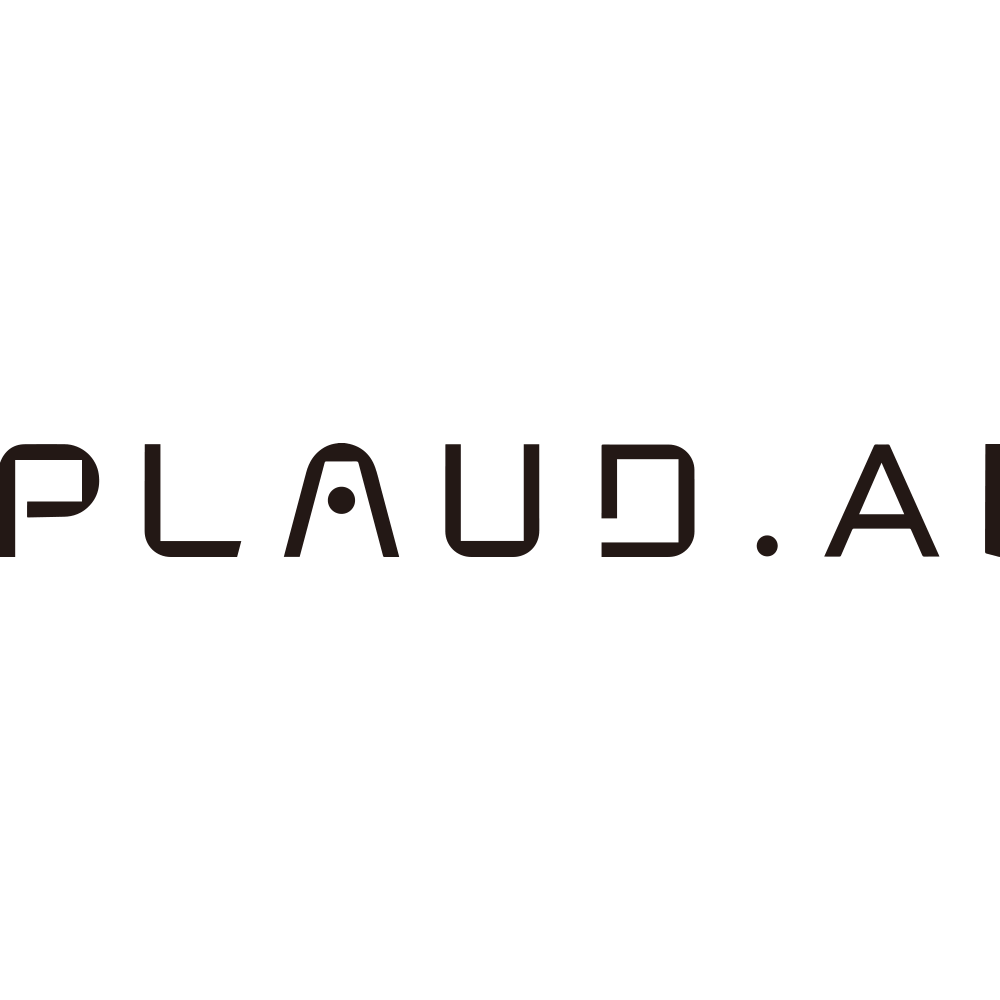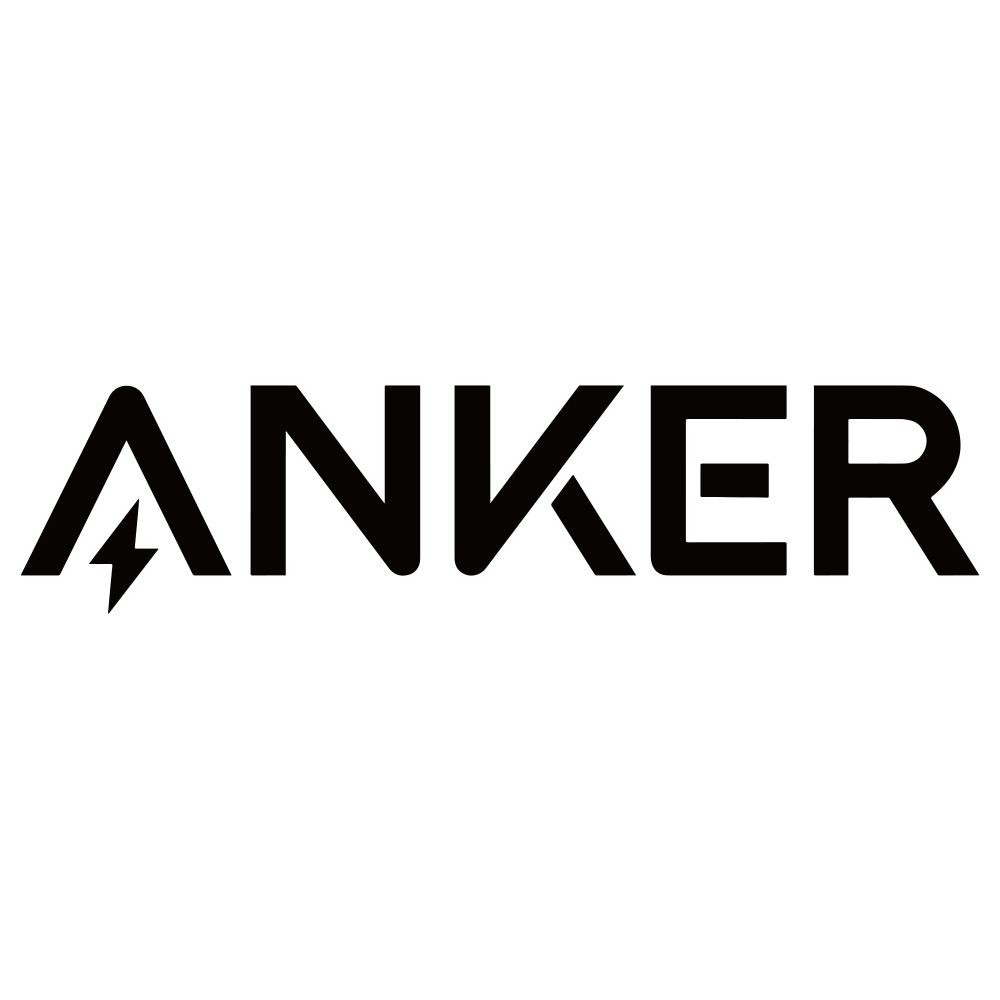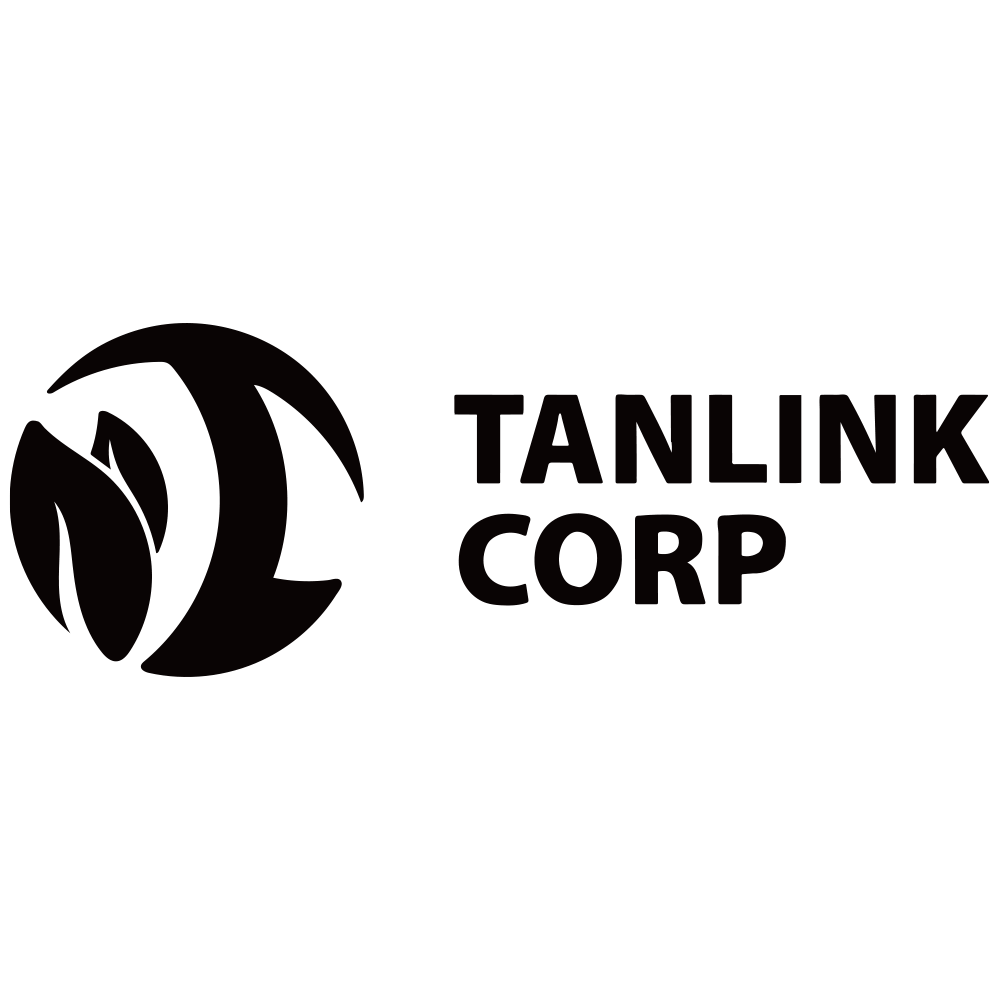A cloud based CRM solution helps businesses improve productivity and increase profitability by managing customer relationships effectively. In recent years, various cloud based CRM systems have been widely used by companies of all sizes and from all industries.
Nowadays, there are hundreds of cloud based CRM software platform on the market, with an estimated 700+. Are you struggling to choose one for your business? Don’t worry. In today’s blog post, Solvea shares with you several cloud based CRM software for small business, nonprofits, and other needs. Let’s start exploring.
What Is Cloud Based CRM
Cloud based CRM is a customer relationship management platform or software that’s hosted on the vendor’s servers and accessed by customers through the internet. It’s type of software as a service (SaaS), which removes the need for local installation and manual updates. Unlike on-premises or installed software, cloud based CRM software provides a flexible, scalable, and cost-effective solution for growing businesses.
Here are some of the most critical features of cloud CRM solutions:
Customer data management system: It stores and manages customer information and contact details. Some advanced systems even allow you to schedule appointments, meetings, and track communications.
Real-time data: An intuitive sales data dashboard makes it easy to view KPIs, measure performance, and track goals.
Mobile access: The mobile CRM enables you to access and manage customer data on any mobile device.
Disaster recovery: Frequent backups can ensure the customer data is always safe and accessible even in server outage.
Integrations: It can integrate with many other business apps, such as Outlook, Gmail, and WordPress.
How Does Cloud Based CRM Work
The working principle of could-based CRM system is to utilize a third-party server that hosts customer data and software on remote servers and is accessible via the internet. This means users can access and update the data from anywhere because the system is centralized in an online hub and is capable of automatically protecting, backing up, and updating data.
To be specific, anyone who needs to access the CRM system for reasons, such as to check the customer contact information, view marketing campaign metrics, or find past customer service requests, can access it at any time via a computer or mobile CRM app.
What Are the Benefits of Cloud Based CRM
Adopting a cloud based CRM system can benefit all customer service-related departments, from customer service and marketing to IT and sales teams. It helps businesses save time and enhance productivity, making them keep unprecedented growth in the competitive market. Below are some of its core benefits:
Reduce upfront costs related to hardware, space, and security configuration.
Free from manual updates and maintenance needed to keep it running smoothly.
Integration with other SaaS systems, like Salesforce, Zoom, and Workspace.
A connected workforce enables your team to stay connected and up to date with the latest customer information.
Personalize customer journeys builds customer royalty and supports your business’ growth.
Best Cloud Based CRM Software in 2025
After investigating extensive user comments and reviewing scores from authoritative websites, like G2, we’re excited to share 7 top-reviewed cloud based CRM providers with you.
Kindly reminder: This part mainly focuses several cloud based CRM software for small businesses, nonprofits, or free.
1.HubSpot
HubSpot stands out due to its free version and collection of pay-to-use features. It’s specially designed for small businesses and sales teams who focus on getting leads. It includes some of the most basic CRM features, such as contact management and lead management. It also has features for measuring and tracking performance metrics.

G2 review scoring: 4.4 out of 5
Top features:
- Email marketing and response control
- Reporting dashboard
- Sales pipeline management
- Leading pages
- Social media integration
Why it’s worth: Its free plan is super generous and has tons of connection (almost 1,000 apps link up for free users).
Limits: The free plan is restricted access to features, such as email automation and reporting.
Paid plans:
- $90/user/month (billed annually)
- $100/user/month (billed annually)
2.Zoho CRM
Zoho CRM is a great choice for those small businesses that have two or three team members. With a flexible and cost-effective cloud-based CRM solution, Zoho offers many powerful features, like pipeline management and AI conversational assistant, and task management. It’s also the best cloud based CRM free to use lots of sales and marketing tools.

G2 review scoring: 4.1 out of 5
Top features:
- AI-powered conversational agent
- Sales and marketing tools
- Referral tracking
- Internal chat integration
- Mobile CRM
Why it’s worth: Allow users to basically create their own version of Zoho. The free version supports up to 3 users and 5,000 records, including lead, contact, account, and deal management.
Limit: The free version don’t offer billing or quoting tools.
Paid plans:
- $57/user/month (billed annually)
- $69/user/month (billed monthly)
3.BigContacts
As a cloud based CRM software for small businesses, BigContacts offers a cost-effective and efficient solution to manage customer relationships and sales processes. It features contact management and email marketing solutions to help you capture more leads and convert sales.
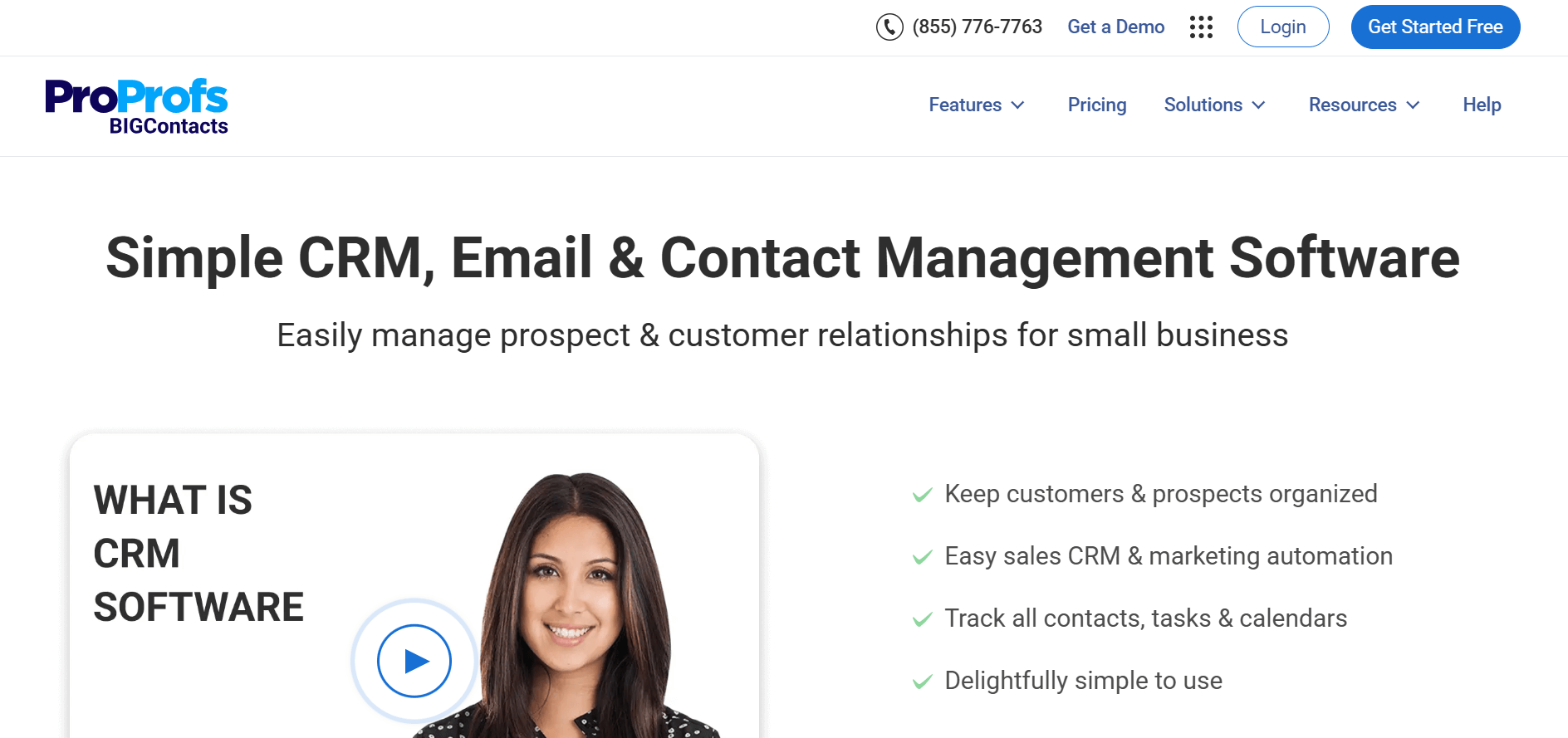
G2 review scoring: 4.5 out of 5
Top features:
- Sales CRM automation
- Marketing automation
- Contacts, tasks, and calendars tracking
- Lead management
- Mobile access
Why it’s worth: The setup is super seamless and can migrate and segment over 5,000 contacts easily.
Limit: Dashboard offer limited customization and basic reporting features with few options.
Paid plan:
l $7/user/month for essential plan
l $15/user/month for pro plan
4.Pipedrive
Pipedrive is a dedicated cloud CRM system for sales teams and small to medium-sized businesses. With intuitive and visual engaging UI design, the software is very easy to use even if you aren’t a coding expert. It offers extensive third-party integrations and features, like mobile access, sales pipeline management, and collaboration tools.
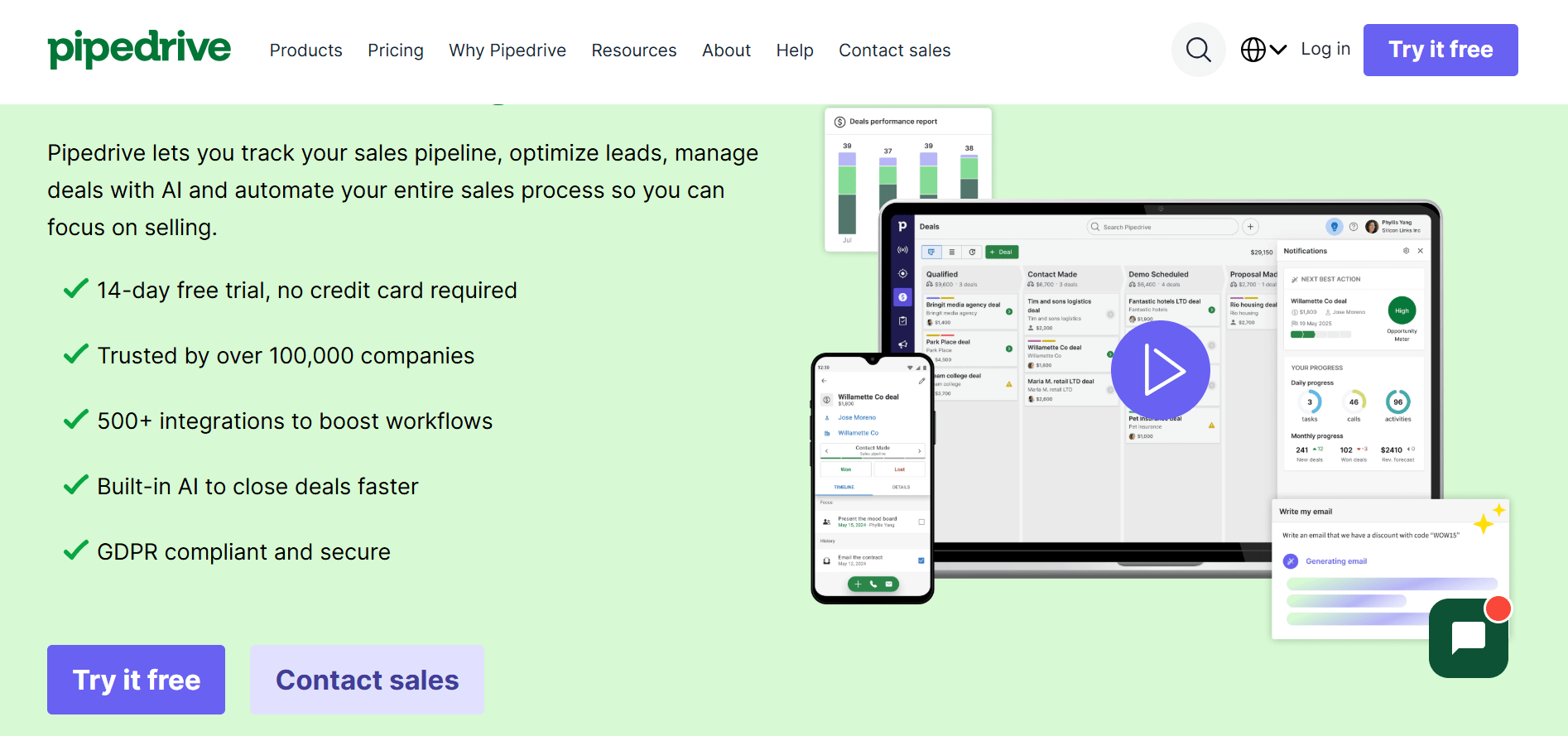
G2 review scoring: 4.3 out of 5
Top features:
- Sales management tool
- Slack CRM integration
- Churn management
- Lead and interaction tracking
- Reminder system
Why it’s worth: Sales-focused CRM system helps small business manage their sales pipelines effectively with an easy-to-use interface.
Limit: The mobile app has limited features and lacks basic automation, like data entry.
Paid plans:
- $49/user/month (billed annually)
- $79/user/month (billed monthly)
5.Salesflare
Are you seeking a cloud based CRM for B2B sales? Salesflare can follow up leads flawlessly and automatically keep track of customers based on existing data in your Google Workspace and Microsoft 365. It provides seamless integrations with your Gmail, Outlook, and LinkedIn inbox. Moreover, its advanced plans features email sequences, a permission system, and custom reporting.
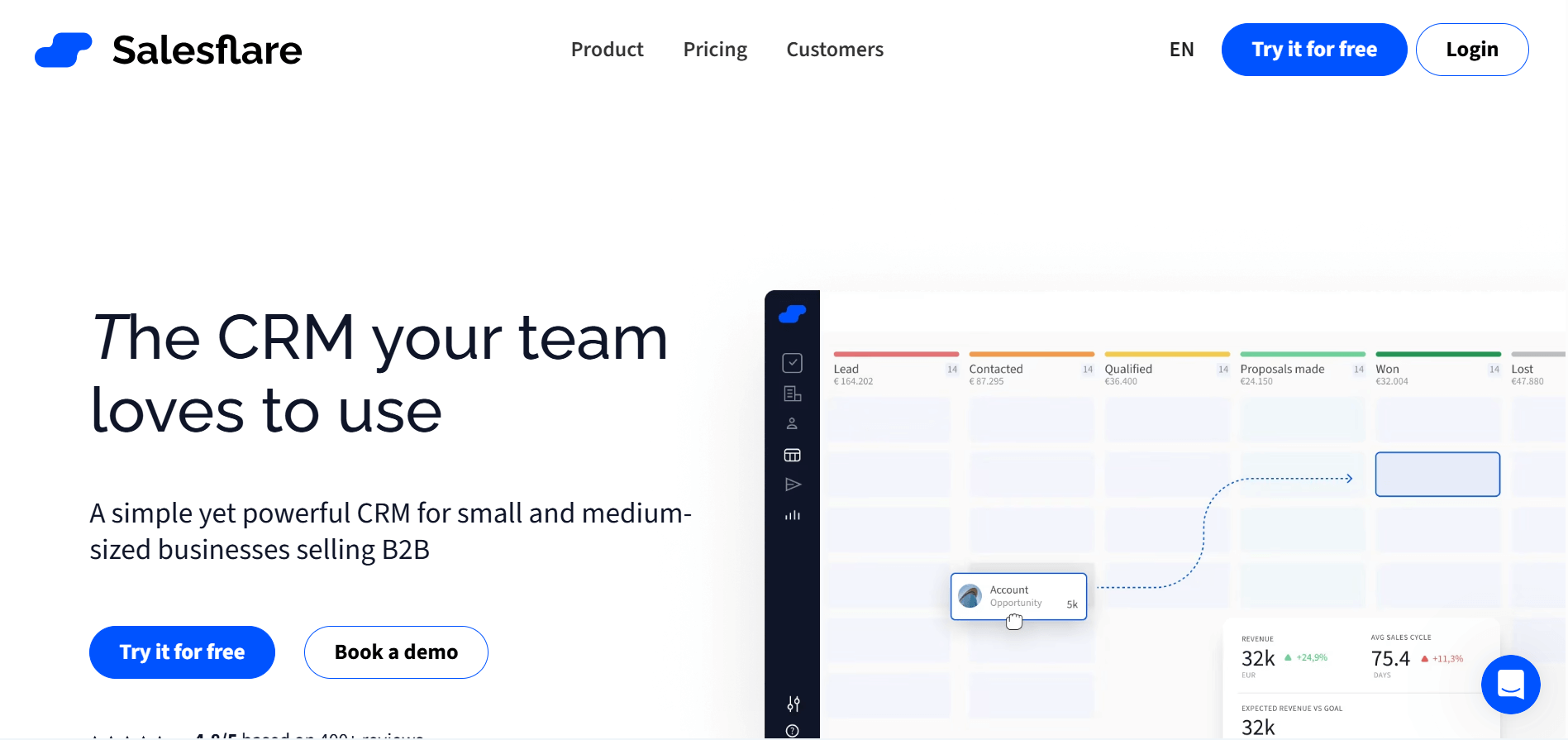
G2 review scoring: 4.8 out of 5
Top features:
- Email sequence and web tracking
- Automated sales tracking
- Contact and account management
- LinkedIn integration
- Reminder system
Why it’s worth: Fully automated sales process can minimize manual data entry and streamlines workflows.
Limit: Lacks email marketing and customization options for B2C sales.
Paid plans:
- $49/user/month (billed annually)
- $64/user/month (billed monthly)
6.EngageBay
The EngageBay cloud based CRM free version is ideal for small marketing teams who want to automate email campaigns and customer workflows. This platform combines sales, marketing automation, and customer support tools to help your team streamline operations. One of the greatest advantages is that it includes full marketing suits, like leading scoring, landing pages, basic live chat, etc.

G2 review scoring: 4.6 out of 5
Top features:
- Landing Pages Builders
- A/B testing
- Marketing automation
- Email tracking
- Helpdesk and ticketing system
Why it’s worth: It includes a set of free tools and cost-effective features that combine CRM and sales, particularly for small businesses.
Limit: The free plan caps contacts at 250
Paid plans:
l $14.99/user/month for basic plan
l $64.99/user/month for growth plan
7.Blackbaud CRM
Blackbaud is an ideal choice if you’re looking for the best cloud based CRM for nonprofit organizations. It is a comprehensive CRM platform that offers industry-leading fundraising, relationship management tools, analytics, and multichannel marketing and services. It empowers nonprofit organizations or education fundraising teams to visualize relationships and improve constituent engagement.
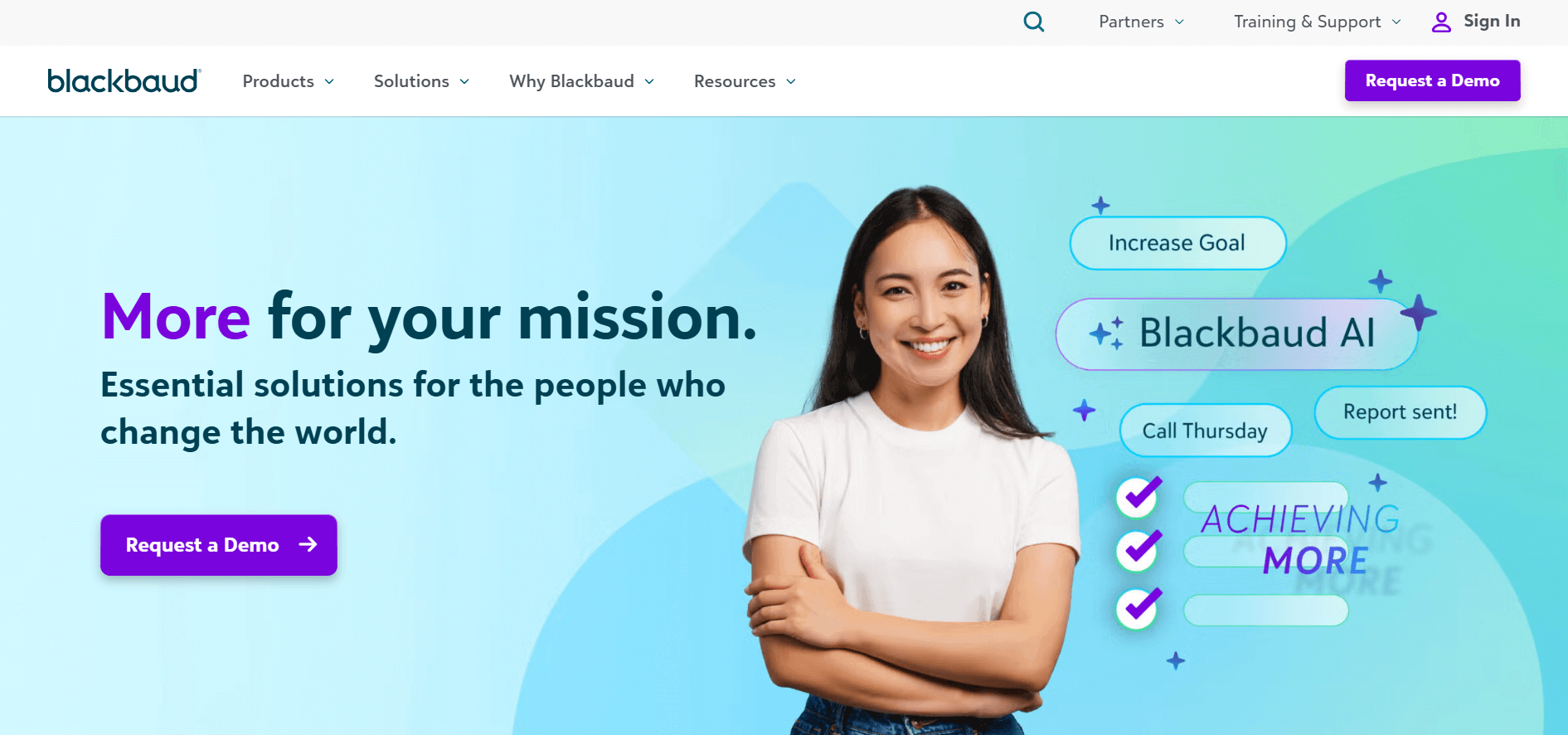
Alt=Blackbaud CRM
G2 review scoring: 3.9 out of 5
Top features:
- Constituent management
- Campaign management
- Integration with data analytics tools
- Mobile and web access
- Automated receipting and acknowledgement
Why it’s worth: designed specially cloud based CRM for nonprofits that can handle complex fundraising and stewardship situations.
Limit: with a high cost and its complex interface is not easy to master.
Paid plans: Require you to contact them for a quote.
How to Choose the Right Cloud Based CRM
The cloud-based CRM system is a relatively high-investment project for most business, it’s important to choose the right provider based on actual situations. When deciding to invest in a cloud based CRM solution, you should consider the three questions carefully:
1.Does the CRM solution fit your use case and business?
To answer the question, you should research the exact use case and the types of your business. For example, if you are a small or medium-sized business (SMB) like B2B, then Salesflare or Zoho CRM might be best fit for you. If you are a small business but focus more on marketing automation, then have a look at HubSpot or EngageBay. For nonprofit or educational organizations, Blackbaud CRM solution is a great choice.
2.Is it integrated with your other sales tools?
Considering integration with other sales tools is vitally important, which ensures you can manage your sales times effectively and achieve goals. In most cases, the sales tools include Outlook, Gmail, Google Workspace, LinkedIn, and mobile phones. For instance, Salesflare, HubSpot, and Zoho CRM have robust integration with these sales’ toolset.
3.Is it a good cloud-based CRM system?
Finally, you should choose a trustworthy cloud based CRM provider. To make a right choice, you can look for CRM that are well rated by actual users across different platforms, such as G2 and Capterra. These global review ratings usually are combined from the following three sources:
Product rating: this is from the professional business software and service review sites (G2 and Capterra)
Mobile app rating: this is from the first-ranked mobile app store (Google Play)
Email plugin rating: this from the first-ranked plugin marketplace (Google Workspace)
Cloud Based CRM FAQ
1.What are the 4 types of CRM systems?
There are 4 main types of CRM systems, including operational CRM, analytical CRM, collaborative CRM, and Strategic CRM.
Operational CRM: It focuses on streamlining and automating regular sales, marketing, and customer service processes to help businesses manage interactions effectively.
Analytical CRM: It’s used to analyze customer interactions to give insights into customer preference, sales hotspots, and market patterns.
Collaborative CRM: It mainly enhances communication and information sharing among different departments, such as sales, customer service, IT support, and marketing.
Strategic CRM: It helps businesses build long-term strategies for customer relationship management and often incorporates the other three types.
2.What is an example of a cloud-based system?
There are lots of examples regarding a cloud based CRM system, such as HubSpot, Zoho CRM, Salesforce, and so on. For example, Zoho CRM is a comprehensive CRM platform that features marketing tools, workflow automation, analytics and reporting, suitable for various business sizes.
3.What does CRM mean?
CRM refers to Customer Relationship Management which is a set of technologies and strategies to help businesses manage and analyze customer interactions. The aim of CRM is to foster business relationships with customers and drive sales growth.
4.Which CRM is best for beginners?
If you are a beginner with limited budget, HubSpot is usually the best CRM solution due to its free plan and user-friendly interface. It offers a good range of free tools, such as 2,000 emails/month email marketing, 1 personal link of meeting scheduling, live chat, basic reporting, and so forth.







